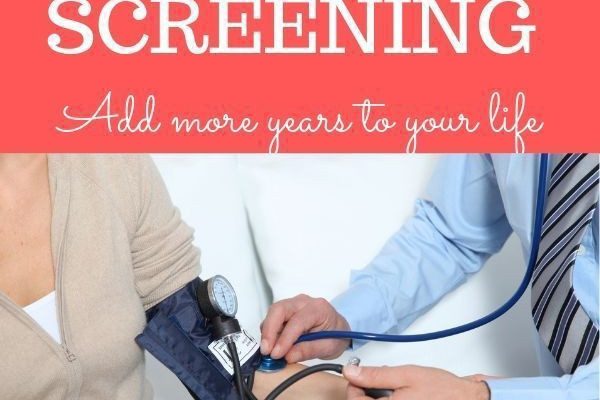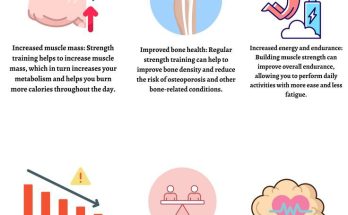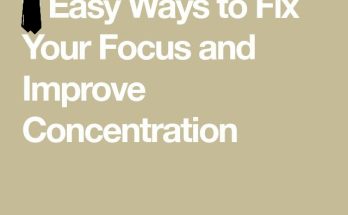A guide to essential health screenings for different age groups and genders makes everything easy for you. Wondering what health screenings you should do at your age? Then read through.
Health screening is the process of assessing your body for diseases or risk factors before any symptoms appear. It is a thorough body check-up usually done through a combination of questionnaires, physical examinations, and medical tests. Every check-up aims to identify potential health problems early enough so they can get treated on time.
Why are screenings important
Health screenings are important so you can identify any health problems, you discover a symptom early enough before it blows up. By getting regular screening, you can deal with arising problems before they become serious. A repeated family disease should also be a reason for health screenings. Screenings can also help you make lifestyle changes that will improve your health.
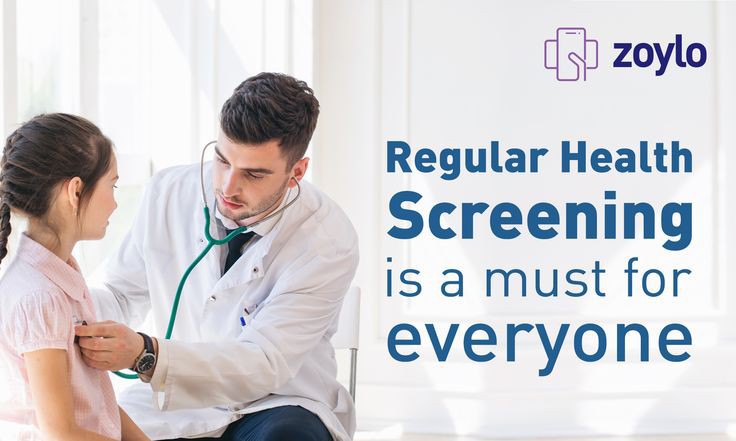
Who needs health screening
First off, everyone should get health screenings based on their age and risks. However, there are other risk factors why a person should go for screening. Factors that include family history, lifestyle, and health condition.
- Family conditions: People with a certain family history should get screened as often. For example, People with a family history of certain cancers should get screened often and earlier.
- Age: Some screenings are recommended based on age, such as mammograms for women over 40.
- Lifestyle choices: Your lifestyle choices such as smoking, drinking, or being overweight can increase your risk for certain diseases, so screenings may be recommended based on these factors.
- Health conditions: If you have a history of certain conditions, like diabetes or high blood pressure, frequent screenings are recommended
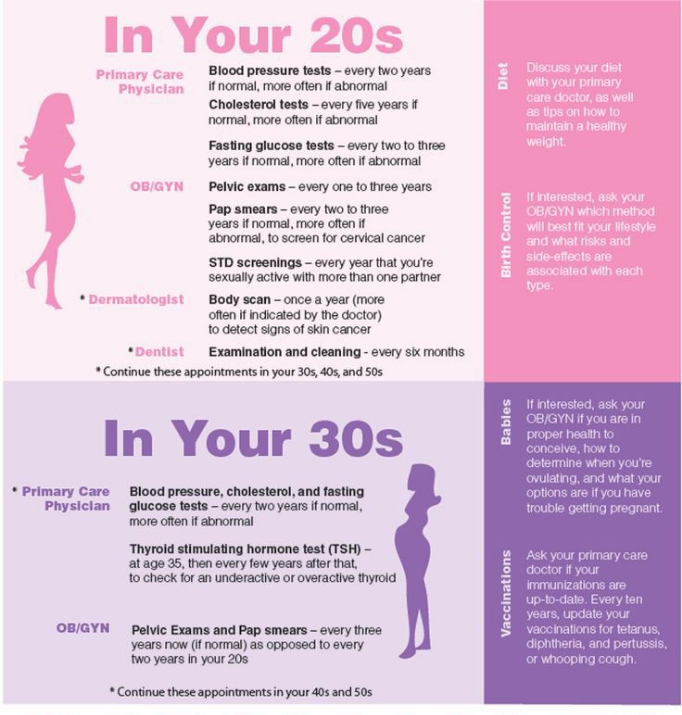
20s and 30s: what screenings to get and how often
Below are a few health screening recommendations in your 20s and 30s.
- Blood pressure every 3-5 years, starting at age 18.
- Blood glucose (sugar) and cholesterol levels every 3-5 years, starting at age 18.
- Mammogram every 1-2 years for women at high risk for breast cancer, starting at age 25.
- Cervical cancer screening (Pap smear) every 3 years for women starting at age 21.
- Colorectal cancer screening (colonoscopy) for people at high risk for colorectal cancer.
- Chlamydia and gonorrhea screening every year for sexy active persons.
- Runella, syphilis, and HIV testing at early pregnancy for pregnant women.
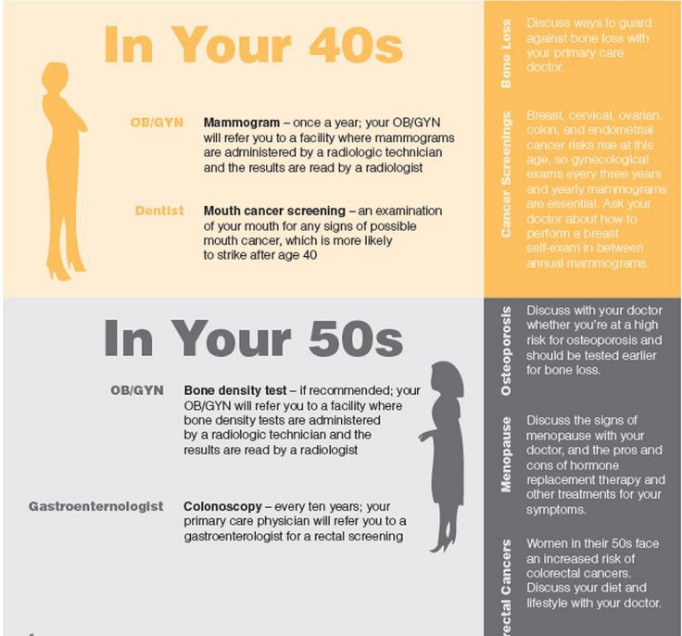
40s and 50s: What screenings to get and how often.
In your 40s and 50s, you should get a number of screenings. Below are a few recommendations.
- Colonoscopy every 10 years, starting at age 45.
- Blood pressure to be checked every year.
- Diabetes test every 3 years.
- Cholesterol to be checked every 5 years.
- Breast cancer screening (mammogram) every 2 years for women starting at age 40.
- Prostate cancer screening (PSA test) every 2 years for men starting at age 50.
- Cervical cancer screening (Pap smear) every 3 years for women up to age 65.
- Osteoporosis screening every 2 years.
60s and beyond: What screenings to get and how often
Even as you age, you need to get some screenings. Health checkups are equally important to the aged to continue to enjoy a healthy life until whenever. Below are a few recommendations for you.
- Blood pressure to be checked every year.
- Diabetes test every 3 years.
- Cholesterol to be checked every 5 years.
- Colonoscopy every 10 years, or more often if you have risk factors for colorectal cancer.
- Abdominal aortic aneurysm screening for men ages 65-75 who have ever smoked.
- Breast cancer screening (mammogram) every 1-2 years for women over age 65.
- Cervical cancer screening (Pap smear) every 3-5 years for women up to
You can also get these ones at age 65.
- Eye check-up every 2-4 years.
- Hearing test every 3 years.
- Bone density test to screen for osteoporosis.
- Kidney function test.
- Thyroid function test.
- Skin examination for signs of skin cancer.
- Flu shot every year.
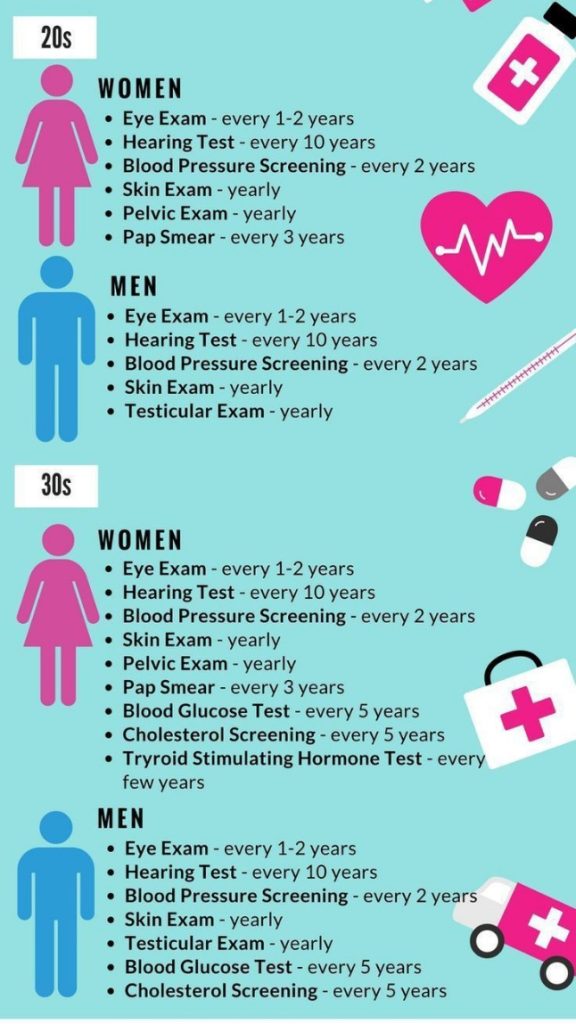
Men and women: Recommended screenings by gender.
There are some screenings that are recommended differently for men and women. It is also important to see your doctor for more accurate screenings. Here are a few examples of some recommendations for men and women.
- Prostate cancer screening: Men ages 55 to 69 should talk to their doctor about prostate cancer screening.
- Breast cancer: Women ages 50 to 74 should get a mammogram every 2 years. Women age 40 to 49 may also need a mammogram, depending on their risk factors.
- Cervical cancer screening: Women ages 21 to 65 should get a Pap smear every 3 years.
- Testicular cancer screening is recommended for men, but not for women.
- Colorectal cancer: The recommended screening schedule is the same for both men and women.
- Lung cancer: People with ages of 50 to 80 who are or were heavy smokers should talk to their doctor about screening.
- Skin cancer: People should do a skin self-exam once a month and see a dermatologist once a year for a full-body skin exam.
- Bone density: Women ages 65 and older should get a bone density test every 2 years to check for osteoporosis.
- Eye examination: People should have a dilated eye exam every 2 to 4 years starting at age 40.
- Dental examination: People should see a dentist every 6 months for a checkup and cleaning.
The importance of staying up to date on screenings and maintaining a healthy lifestyle
It’s important to stay up to date on your screenings as you age. Screenings can help catch health problems early when they are often easier to treat. A healthy lifestyle, including a balanced diet, regular exercise, and good sleep habits, can help reduce your risk of developing health problems in the first place. Staying up to date on your screenings and living a healthy lifestyle can help you enjoy a long, healthy life.
Conclusion
It is important you go for check-ups regularly. A healthy life is a wealthy life. If you want to live long and enjoy life, then stay up to date with your checkups. Identifying your problems earlier gives you an edge and they are often easier to treat.
Maintaining a healthy lifestyle, eating a balanced diet, exercising regularly, and inculcating good sleep habits keep you away from arising problems.
Would you be trying out any health screening?
Let me know in the comments.
